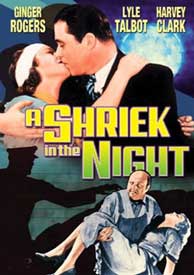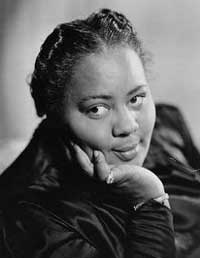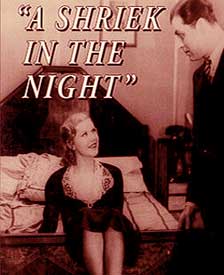A Shriek in the Night is a fair if not quite good screwball or light romantic comedy hybridized with a murder mystery. The plummet from a hotel window that opens the film, & a later scene where the heroine is at risk of being burned alive in a furnace, are quite harrowing, but for the most this is a lighthearted film.
 Ginger Rogers plays a newspaper reporter on the track of a story regarding an apparent suicide that is actually a murder. Lyle Talbot is a reporter on a rival paper who plays a rotten trick on her & loses her her job, so has to try awfully hard to make amends while competing for the same story. Ginger Rogers plays a newspaper reporter on the track of a story regarding an apparent suicide that is actually a murder. Lyle Talbot is a reporter on a rival paper who plays a rotten trick on her & loses her her job, so has to try awfully hard to make amends while competing for the same story.
The mystery element is a bit more elaborate than average for such standard-product films, & Ginger is inescapably appealing with fine instincts for comedy.
The villain of the piece (Harvey Clark) is almost a non-entity beginning to end, but the old police inspector (Pernell Pratt) makes a much better foil for Ginger than does Lyle. In all, it's a poor substitute for a quality film noir, but it'll do in a pinch.
The side-characters of the two housekeepers put me to thinking. One of the fascinating things about "average" old films written & directed by the second-string talent are the sociological windows on racism or sexism or jingoism as manifested in the given film's decade, & A Shriek in the Night provides an opportunity to assess black stereotyping in Hollywood films.
 A common comic figure in such old thrillers is the frightened foot-shufflin' cowardly black man. But in this film she's the black maid played by chubby Louise Beavers, who has true comic genius despite the limited types of roles available to black actors of her day. A common comic figure in such old thrillers is the frightened foot-shufflin' cowardly black man. But in this film she's the black maid played by chubby Louise Beavers, who has true comic genius despite the limited types of roles available to black actors of her day.
I couldn't help but feel that someone on the script or on the set felt the usual bug-eyed frightened Stepin Fetchit type character was offensive when making this stock character a woman for a change, as the story already had in it another maid, who is white, & played by Lillian Harmer who specialized in matrons & charwomen.
Harmer's role is an interesting contrast, for the charcter of Augusta the housekeeper is even more skittish & frightened than the black maid, working herself into a dither by reading murder mysteries in pulp magazines while a real murder mystery builds around her. The two housekeepers are essentially the same character, except Augusta the housekeeper gets to have a name while the black maid does not; & Augusta gets to be literate if only for the sake of pulp magazines.
What Louise Beavers brings to her recurring maid roles is her own strong sense of humanity & goodness. In her key scene in A Shriek in the Night, when no one can talk her into entering the morgue even under threat of imprisonment if she won't assist the police in their investigation, it's too bad the scaredy-cat negro is such a cliche, but even so, look at how Louise invests the character with a degree of realism, humorous but not merely slapstick. A viewer can empathize with her unwillingness to be in a building full of corpses & laughs with her instead of at her.
Though it struck me as bordering on "sensitive" that the script had both white & a black cowardly servants, instead of just the usual superstitious negro, how much more progressive it would've seemed had the black maid been the one who was addicted to reading, or was instrumental in solving the crime, or whose key scene did not climax with her hightailing it down the street to get as far away from the dead as these feets could take her.
In any case, it is always an eye-opening reminder to see how much worse black performers had it in Hollywood in ye olden days of cinema.
copyright © by Paghat the Ratgirl
|

 Ginger Rogers plays a newspaper reporter on the track of a story regarding an apparent suicide that is actually a murder. Lyle Talbot is a reporter on a rival paper who plays a rotten trick on her & loses her her job, so has to try awfully hard to make amends while competing for the same story.
Ginger Rogers plays a newspaper reporter on the track of a story regarding an apparent suicide that is actually a murder. Lyle Talbot is a reporter on a rival paper who plays a rotten trick on her & loses her her job, so has to try awfully hard to make amends while competing for the same story. A common comic figure in such old thrillers is the frightened foot-shufflin' cowardly black man. But in this film she's the black maid played by chubby Louise Beavers, who has true comic genius despite the limited types of roles available to black actors of her day.
A common comic figure in such old thrillers is the frightened foot-shufflin' cowardly black man. But in this film she's the black maid played by chubby Louise Beavers, who has true comic genius despite the limited types of roles available to black actors of her day.